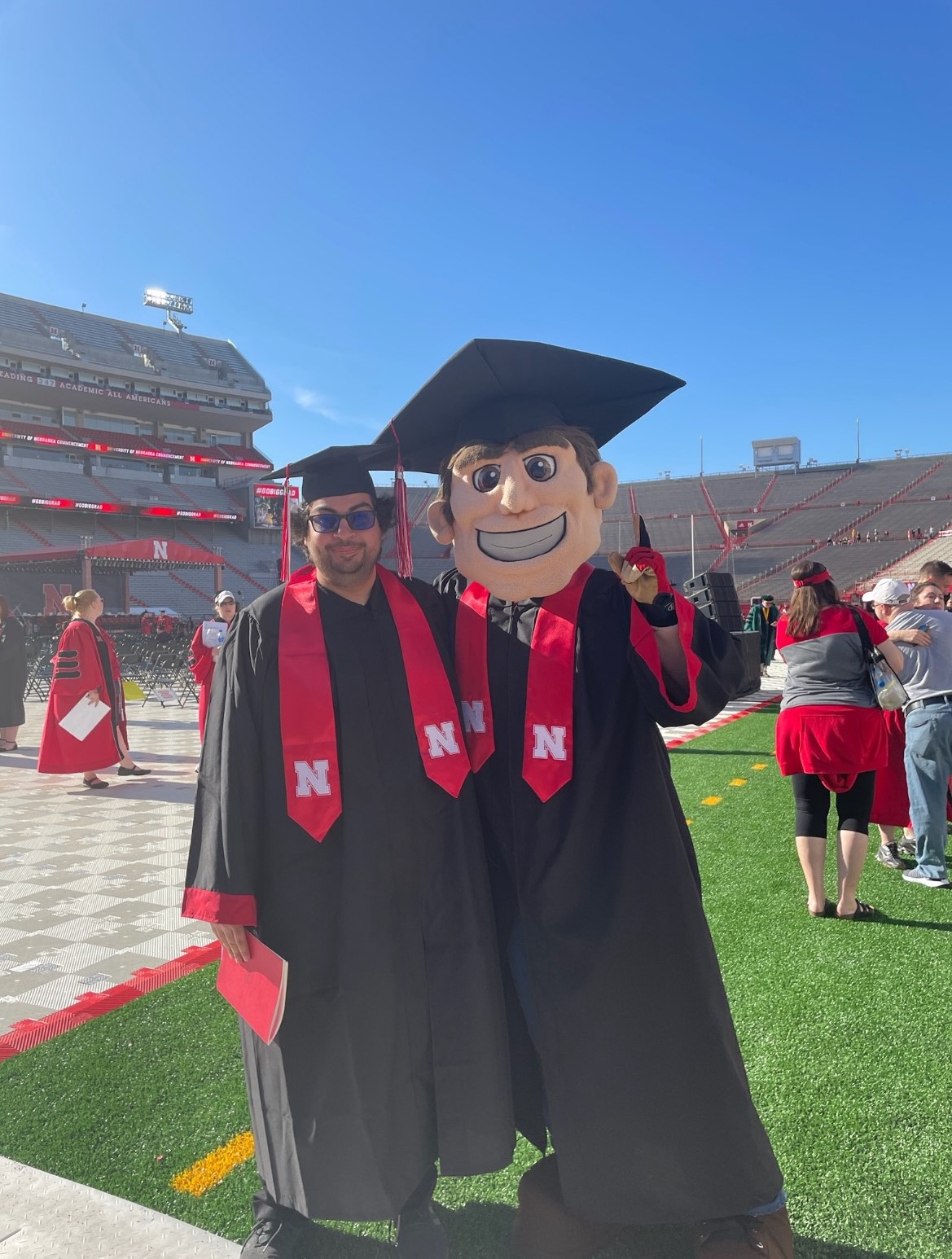
When I started my first year at college, I took some time to come out of my shell; I was riddled with insecurities and a lack of self-identification. I grew up in rural Nebraska and wanted to go to a big school so bad, and I’m glad I did, but the transition was hard at first. I was in a completely new environment with all kinds of people around me. I started off as a music-education major only because I was good at music in high school, and I enjoyed singing and playing my saxophone. At the time I was still suffering from the effects of “coasting” and fell out of the major due to lack of discipline; high school was easy for me, but college was unpredictable.
After my tumultuous first year in school, my second year served as a fresh start. However, there was something that started in me that hadn’t happened before, I had social anxiety. I remember being so confused, looking back I think it was the association of comfort with smaller groups that I was used to growing up in a small rural area. Going to music school had the benefit of fewer classmates, but when I switched my major to psychology, I started having 80-100 students in each class; this marked my second major adjustment in college.
What got me over my anxiety was something that I thought was always so corny, I went outside of my comfort zone. In the summer of 2019, I went to France for a month as part of a study abroad program. Just reading that alone will tell you how crazy it seemed for a person with social anxiety to go across the world and be around people I’ve never met before. I do believe that such a huge step, and not even a baby-step, shocked me out of it and helped me feel more comfortable in larger groups to some degree.
That same year I had come across the University of Nebraska Intertribal Exchange (UNITE); a registered student organization (RSO) on campus for Indigenous students. Being in UNITE opened a lot of doors for me and it was a crucial part of my involvement on campus (not to mention the opportunity I had to gain exposure to the Indigenous community and finding an interest in my family’s Indigenous roots in Mexico).
I was the treasurer for UNITE for 3 years; during those 3 years I was able to be on a couple of advisory boards for the university, and a search committee for an associate vice chancellor position. While I was part of these groups, I learned important skills in collaboration, advising, and the decision-making process. The advising process is important when you consider the needs of the group you’re providing for; there are different perspectives on campus and it’s part of a community that must be made for everyone. There are many parts to the whole and it takes a complete and controlled process of communication, deliberation, and marked progress to achieve your goals and objectives.
Being a part of an RSO on campus, I was able to have opportunities that taught me skills that I could put back into UNITE. I was able to become an effective advisor for the group at different times as we looked to achieve our goals; it was important that I understood the necessary adjustments to be made in our group so that the various projects we’d work on could be carried out efficiently. Any employer can see that on your resume and understand how important those experiences are in determining how reliable and efficient of a worker you are going to be.
This is something I think is most important for people to understand. Your college experience is more than your classes. They’re important of course; it showcases your consistency and ability to complete tasks/projects while meeting deadlines (and is crucial to proving that you took the time and effort to invest in yourself for something incredibly important). However, there are undeniable benefits to being a part of the campus climate and making an impact to the community that everyone learns, grows, and develops in. It is important to take both your classes and extracurricular activities seriously as there may not be a better time to fully reach your potential as a human.